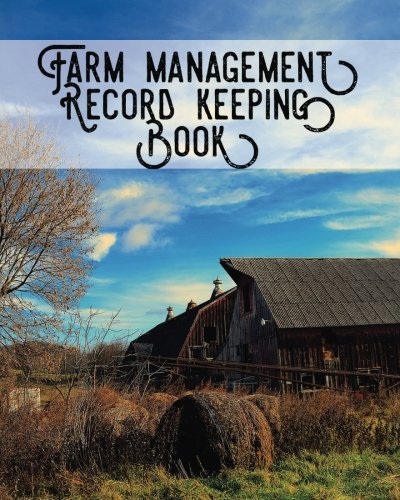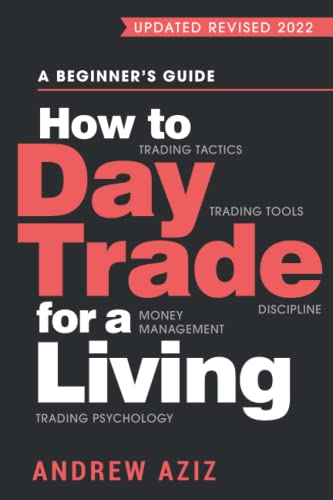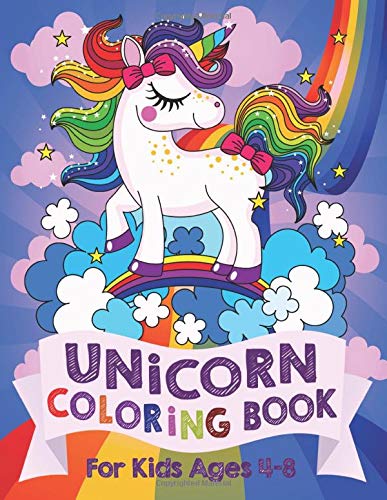We spent many hours on research to finding farm management, reading product features, product specifications for this guide. For those of you who wish to the best farm management, you should not miss this article. farm management coming in a variety of types but also different price range. The following is the top 10 farm management by our suggestions:
Best farm management
1. Farm Management
Description
This text is developed for the first course in Farm Management, typically taken by a junior/senior level student. Designed to introduce students to the key concepts on how to effectively manage a farm business, the eighth edition provides students with the basic information needed to measure management performance, financial progress, and the financial condition of the farm business.2. The Farmer's Office: Tools, Tips and Templates to Successfully Manage a Growing Farm Business
Feature
New Society PublishersDescription
A practical, how-to guide for farmers who want to achieve and maintain financial sustainability in their businesses
You decided to become a farmer because you love being outside, working the land and making a difference in the way we eat and farm.
And when you decided to become a farmer, you also became an entrepreneur and business person. In order to be ecologically and financially sustainable, you must understand the basics of accounting and bookkeeping, and learn how to manage a growing business.
Author Julia Shanks distills years of teaching and business consulting with farmers into this comprehensive, accessible guide. She covers all aspects of launching, running and growing a successful farm business through effective bookkeeping and business management, providing tools to make managerial decisions, apply for a loan or other financing, and offering general business and strategy advice for growing a business.
Whether you've been farming for many years or just getting started, The Farmer's Office gives you the tools needed to think like an entrepreneur and thoughtfully manage your business for success.
Julia Shanks works with food and agricultural entrepreneurs to achieve financial and operational sustainability. She has worked with a range of beginning and established farmers, providing technical assistance and business coaching that has allowed them to launch, stabilize and grow their ventures. A frequent lecturer on sustainable food systems and accounting, she sits on the advisory board of Future Chefs and is the regional leader of Slow Money Boston. Together with Brett Grohsgal, she is also co-author of The Farmers Market Cookbook.
3. Farm Management
Feature
Used Book in Good ConditionDescription
This text is developed for the first course in Farm Management, typically taken by a junior/senior level student. Designed to introduce students to the key concepts on how to effectively manage a farm business, the seventh edition provides students with the basic information needed to measure management performance, financial progress, and the financial condition of the farm business.4. The Lean Farm: How to Minimize Waste, Increase Efficiency, and Maximize Value and Profits with Less Work
Feature
Ships from VermontDescription
A practical, systems-based approach for a more sustainable farming operation
To many people today, using the words factory and farm in the same sentence is nothing short of sacrilege. In many cases, though, the same sound business practices apply whether you are producing cars or carrots. Author Ben Hartman and other young farmers are increasingly finding that incorporating the best new ideas from business into their farming can drastically cut their wastes and increase their profits, making their farms more environmentally and economically sustainable. By explaining the lean system for identifying and eliminating waste and introducing efficiency in every aspect of the farm operation, The Lean Farm makes the case that small-scale farming can be an attractive career option for young people who are interested in growing food for their community. Working smarter, not harder, also prevents the kind of burnout that start-up farmers often encounter in the face of long, hard, backbreaking labor.
Lean principles grew out of the Japanese automotive industry, but they are now being followed on progressive farms around the world. Using examples from his own familys one-acre community-supported farm in Indiana, Hartman clearly instructs other small farmers in how to incorporate lean practices in each step of their production chain, from starting a farm and harvesting crops to training employees and selling goods. While the intended audience for this book is small-scale farmers who are part of the growing local food movement, Hartmans prescriptions for high-value, low-cost production apply to farms and businesses of almost any size or scale that hope to harness the power of lean in their production processes.
5. Farm Business Management: The Fundamentals of Good Practice (Farm Business Management Series)
Feature
CABIDescription
Farming is a complex job with many unique challenges, but can also be a rich and rewarding career that is full of opportunities. Following the author's Farm Business Management series, this new textbook takes the core principles and techniques and distills them into an accessible student resource. This book:* covers the most important aspects of farm management, such as observation, decision making, budgeting, risk assessment and record keeping
* is organized into easy-to-navigate sections such as the farmer's environment, financials, key skills and farm systems
* includes student-focused pedagogy throughout, comprising learning objectives, focus study exercises and review questions.
Written by an expert with decades of teaching and research experience around the world, this book also incorporates two brand new chapters on farm accounting and computer systems and software. Providing a hands-on learning experience for students of agriculture, it will continue to be a much-used resource throughout their farming career.
6. Fearless Farm Finances: Farm Financial Management Demystified Second Edition
Description
This newly revised book presents the complex subject of farm financial management in a straight forward and readable style, with numerous tips and examples from working farms. The book offers examples from a diversity of farms, from dairy to diversified vegetable, to orchards and pastured poultry. The content is relevant for both small- and large-scale operations. Sample farm data sets highlight how equations, formulas, and analysis are done. Discussions about financial ratios, pricing strategies and ways to assess and improve profitability can help farmers improve the sustainability of their operations.
A project of the Midwest Organic and Sustainable Education Service, (MOSES), authors include Paul Dietmann, emerging markets specialist at Badgerland Financial, Dr. Craig Chase, farm management specialist for Iowa State University, and project manager and editor, Jody Padgham, finance director of MOSES.
Fully indexed with a glossary, this approximately 250 page 8.25 x 11 inch paper bound book is a valuable resource for both beginning and established farmers.
Book sections include:
- Starting With Financial Management
- Farm Data Collection and Organization
- The Big Picture: Organizing Basic Financial Information
- Analysis and Decision-Making Using Your Numbers
- Analyzing Specific Elements of Your Farm
- Thinking About the Future
- Other Factors that Affect Your Financial Situation
7. Five Acres and Independence: A Handbook for Small Farm Management
Description
Everyone who has ever dreamed of getting back to the soil will derive from Maurice Grenville Kains' practical and easy-to-understand discussions a more complete view of what small-scale farming means. Countless readers of Five Acres and Independence have come away with specific projects to begin and moved closer to the fulfillment of their dreams of independence on a small farm.
Whether you already own a suitable place or are still looking, Five Acres and Independence will help you learn to evaluate land for both its total economic and its specific agricultural possibilities. There are methods of calculating costs of permanent improvements draining the land, improving soil, planting wind breaks, putting in septic tanks, cellars, irrigation systems, greenhouses, etc. and methods of carrying out those improvements. There are suggestions for specific crops strawberries, grapes, vegetables, orchards, spring, summer, and fall crops, transplanting, timing, repairing what already exists with methods of deciding what is best for your land and purposes and techniques for making each of them pay. There are suggestions for animals for the small-scale farmer goats, chickens, bees and means of working them into your overall farm design. And there are suggestions for keeping your small farm in top production condition, methods of continually increasing the value of your farm, methods of marketing your produce and of accurately investing in improvements virtually everything a small-scale farmer needs to know to make his venture economically sound.
Some things, of course, have changed since 1940 when M. G. Kains revised Five Acres and Independence. But the basic down-to-earth advice of one of the most prominent men in American agriculture and the methods of farming the small-scale, pre-DDT farm are still essentially the same. Much of the information in this book was built on USDA and state farm bureau reports; almost all of it was personally tested by M. G. Kains, either on his own farms or on farms of the people who trusted him as an experienced consultant. His book went through more than 30 editions in the first 10 years after its original publication. It has helped countless small farmers attain their dreams, and it continues today as an exceptional resource for those who want to make their first farming attempt.
8. Farm Management: Principles and Strategies
Feature
Used Book in Good ConditionDescription
Designed to teach the farm managers of tomorrow, FarmManagement emphasizes the strategic and operations aspects ofmanaging a farm. Todays farm managers will want to consultit as well to improve the effectiveness, objectivity, and successof their decisions.This innovative textbook is framed by the increasing need forfarmers to develop and follow a business plan. Topics not found intraditional farm management texts include: Strategic management;How to evaluate, choose, and implement the business strategies thatbest fit the farm and the farmer; Production and operationsplanning; How to benefit from techniques and management tools usedin general business; Quality management and control that willdecrease costs and meet consumer demands; Production contractevaluation; Decision making beyond the traditional microeconomicanalysis: decision making under risk and the development ofscenarios to understand the impact of an uncertain future.
Fundamental farm management topics and basics are not ignored inthis all-inclusive text. Traditional material includes budgeting,marketing, enterprise selection, production planning, financialanalysis, financial management, investment analysis, riskmanagement, work force management, business organization, andcontrol management.
Student learning will be enhanced by review questions and aglossary in the book. Other ancillary material: study notes,virtual field trips, a test bank, class assignments, instructionson how to produce local examples to complement the examples in thetext, and worksheets for students are available on theauthors website or on a CD-ROM.
9. Economics of Farm Management in a Global Setting
Description
Farm managers will appreciate this book as they learn the principles of farm management; from the basics of management and economics; to the details of strategy and operations. It presents economic concepts, such as the discussion of markets, competitive forces, and macroeconomics, which is new to farm management texts. Material is included on strategy, marketing, budgeting, production and operations, quality, finance, investment, risk, contracts, staffing, business organisation, farm succession, and the future. Strategic management and quality management as well as new techniques and tools in production and operations management are also examined. This approach will help farm managers improve the efficiency, effectiveness, objectivity, and, ultimately, success of their decisions.10. Farm Management Record Keeping Book: Bookkeeping Ledger Organizer | Equipment Livestock Inventory Repair Log | Income & Expense Receipts | Notes & Calendar Planners (Farming) (Volume 10)
Description
Keep track of your livestock & farming needs with our handy book, with vast amount of details in one place.
COVER:
8" x 10"(20.32 x 25.4 cm)
Durable Glossy Paperback(Please note that you will need to press the pages firmly in order for it to lay flat)
INSIDE YOU WILL FIND:
Personal Details Page
Contents Page
Livestock Record Log
Equipment Inventory Pages
Equipment Repair Logs
Farm Expenses Pages
Farm Income Pages
Notes Pages
Two Years Of Monthly Calendar Pages












